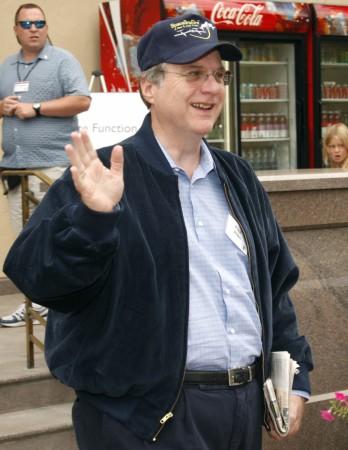
Microsoft co-founder and billionaire philanthropist Paul Allen would invest $100 million in unconventional bio-science project over 10 years, which he describes as having great benefits to the human race.
Allen launched the Frontier Group Wednesday that would start investing in bioscience initiatives at Stanford and Tufts universities for the creation of new research centres.
"We wanted to find people who might not be where the herd is going," Tom Skalak, executive director of the new Frontiers Group, was quoted as saying by STAT.
Each university would receive about $30 million over eight years to study drug resistance, immune system and tissue regeneration.
The Stanford University research centre, led by biologist Markus Covert, would study the interaction of the Salmonella bacteria with the immune system and how the drug resistance arises. The centre will combine computational modelling, bioengineering, cell biology, and immunology for its study.
The Tufts University centre will study the morphogenic code or the signals inside organisms that help network of cells develop into functional tissues and organs.
"It is a real challenge to get [grant] reviewers up to speed on that, and I've written way, way more proposals than have gotten funded," Michael Levin, a biologist at Tufts University, was quoted by STAT as saying.
Paul Allen's latest announcement of investing in risky science projects comes out of his commitment to give scientists with out- of- the- box ideas, the equipments, workforce and connections to counterparts in math, engineering, physical sciences and computer science, so their work can reach its full potential, the Washington Post reported.
"What I believe is that this is potentially a game-changer for our understanding of complex biological systems," Allen told the Washington Post.









!['Had denied Housefull franchise as they wanted me to wear a bikini': Tia Bajpai on turning down bold scripts [Exclusive]](https://data1.ibtimes.co.in/en/full/806605/had-denied-housefull-franchise-they-wanted-me-wear-bikini-tia-bajpai-turning-down-bold.png?w=220&h=138)



